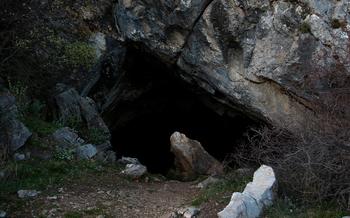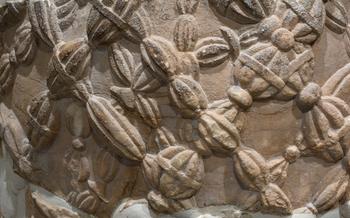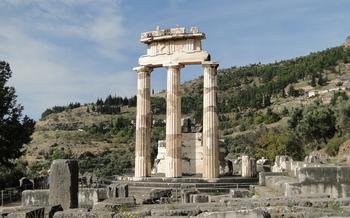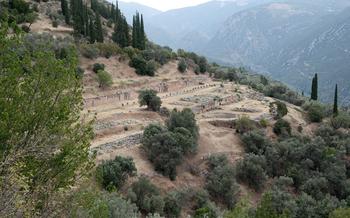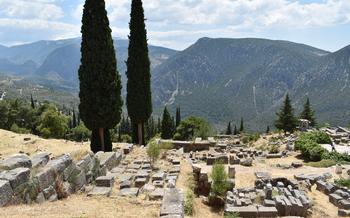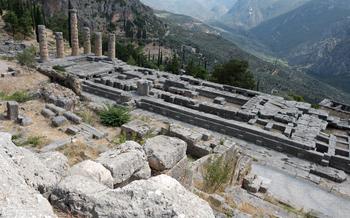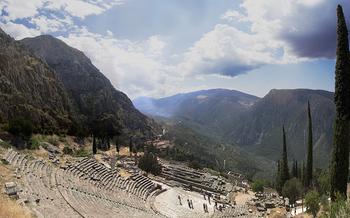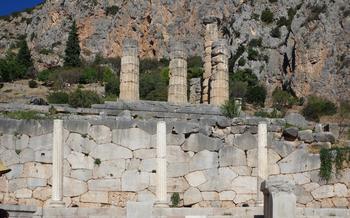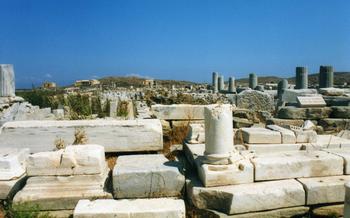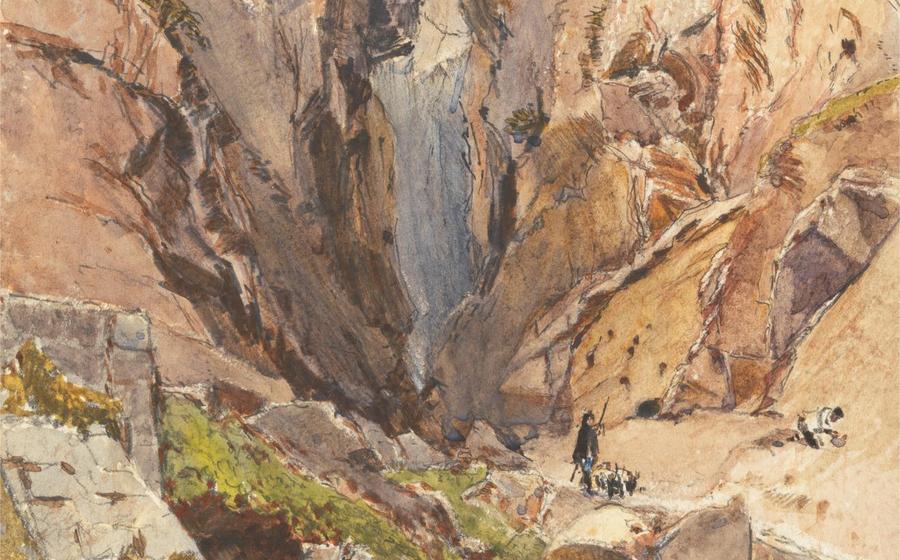
Castalian Spring
- Delphi: A Sacred Place
- The Castalian Spring: A Sacred Water Source
- Visiting the Castalian Spring
- Ancient Festivals and Celebrations
- The Oracle's Prophecies
- Exploring the Archaeological Site
- The Delphi Museum: A Treasury of Ancient Wonders
- Mount Parnassus: A Natural Wonder
- The Olive Groves of Delphi
- Local Cuisine and Hospitality
- Souvenirs and Handicrafts
- Photography Opportunities
- Planning Your Visit
- Respecting the Site
Delphi: A Sacred Place
Delphi holds a prominent place in ancient Greek history as a significant religious and cultural center. The city was believed to be the earthly home of the god Apollo, and his oracle delivered prophecies that influenced decisions throughout the Hellenic world. The Sanctuary of Apollo, with its majestic Temple of Apollo, was the heart of Delphi's religious significance. The surrounding natural beauty, including Mount Parnassus and sprawling olive groves, added to the awe-inspiring atmosphere of this ancient site. Visitors to Delphi can immerse themselves in its rich history, explore its impressive ruins, and experience the enduring legacy of this sacred place.
The Castalian Spring: A Sacred Water Source
Within the sacred precinct of the Sanctuary of Apollo, nestled at the foot of Mount Parnassus, lies the Castalian Spring, a natural water source imbued with profound mythological and historical significance. According to ancient Greek mythology, the spring was created when the hoof of the winged horse Pegasus struck the ground, releasing a gush of water that became a sacred fountain. The Muses, the divine patrons of the arts, were believed to reside by the spring, inspiring poets, musicians, and artists with their divine breath.
In ancient times, the Castalian Spring held a prominent place in religious rituals and ceremonies. Before entering the sanctuary, pilgrims and worshippers would perform purification rites by washing their hands and feet in the spring's cool, clear waters. This ritual symbolized the cleansing of the body and soul, preparing individuals for communion with the divine. The water from the spring was considered sacred and believed to possess healing properties, attracting pilgrims from far and wide seeking rejuvenation and renewal.
Visiting the Castalian Spring
Within the archaeological site of Delphi, visitors can easily access the Castalian Spring. The picturesque setting, amidst ancient ruins and lush vegetation, creates a serene atmosphere that invites contemplation and tranquility. Visitors are welcome to taste the spring water, experiencing its refreshing qualities and symbolic purity. The spring's continuous flow serves as a reminder of the enduring nature of nature and the sacredness of this place. Whether seeking inspiration, reflection, or simply a moment of peace, the Castalian Spring offers a unique and enriching experience for all who visit.
Ancient Festivals and Celebrations
Delphi was not only a religious center but also a vibrant cultural hub, hosting renowned festivals and celebrations that drew participants from across the ancient world. Among these, the Pythian Games stand out as the most significant. Held every four years in honor of Apollo, the Pythian Games were a grand spectacle that combined athletic competitions, musical contests, and religious rituals.
The athletic events included footraces, wrestling, boxing, chariot races, and equestrian events, showcasing the physical prowess and skills of the participants. The musical and poetic competitions, on the other hand, celebrated the arts and honored Apollo's patronage of the Muses. Poets, musicians, and artists from all over Greece gathered to perform their works and compete for prestigious prizes.
Beyond the competitions, the Pythian Games were also a time for religious ceremonies and rituals. Devotees of Apollo flocked to Delphi to offer sacrifices, seek oracles, and participate in processions and hymns honoring the god. The entire city pulsated with a festive atmosphere, as locals and visitors alike immersed themselves in the joyous celebrations.
During the Pythian Games, Delphi transformed into a vibrant metropolis, teeming with athletes, artists, merchants, and spectators. The streets buzzed with excitement, and the air was filled with the sounds of music, laughter, and the roar of the crowd. The Pythian Games were a true embodiment of the harmonious blend of religion, culture, and sports that characterized ancient Greek civilization.
The Oracle's Prophecies
In ancient times, seeking advice from the Oracle of Delphi was a significant undertaking, steeped in ritual and mystery. Those seeking guidance would first undergo purification rituals, offering sacrifices and prayers to Apollo. Once purified, they would enter the sanctuary and approach the Oracle, who was believed to be the mouthpiece of the god.
The Pythia, the priestess who delivered the Oracle's prophecies, played a crucial role in this process. Chosen for her purity and devotion, the Pythia would enter a trance-like state, believed to be inspired by Apollo himself. In this state, she would utter cryptic and ambiguous prophecies, which were then interpreted by the priests.
The Oracle's responses were often enigmatic, open to multiple interpretations, and required careful consideration. This ambiguity allowed for a range of possibilities and outcomes, leaving room for personal reflection and decision-making. Famous historical figures, such as Croesus, Alexander the Great, and Solon, consulted the Oracle, seeking guidance on matters of war, politics, and personal destiny.
The influence of the Oracle extended far beyond Delphi, shaping the course of history and impacting the lives of individuals and nations. Its prophecies played a significant role in shaping ancient Greek culture and contributed to the prestige and renown of Delphi as a religious and cultural center.
Exploring the Archaeological Site
Delphi's archaeological site is a treasure trove of ancient ruins, silently narrating the stories of a bygone era. As you wander among the well-preserved remains of the Sanctuary of Apollo, you'll encounter temples, treasuries, and other structures that once served as the stage for religious rituals and cultural events. Each ruin holds significance, offering a glimpse into the intricate tapestry of ancient Greek religion and culture.
The Temple of Apollo, the heart of the sanctuary, stands as a testament to the architectural prowess of the ancient Greeks. Its imposing columns and intricate carvings evoke a sense of awe and wonder. Nearby, the treasuries, once used to store offerings to the gods, showcase the artistic talents of the city-states that constructed them. The Athenian Treasury, with its elegant Ionic columns and exquisite sculptures, is a particularly noteworthy example.
As you explore further, you'll discover the remains of the ancient theater, where dramas and musical performances once entertained the masses. The acoustics are still remarkable, allowing you to imagine the vibrant atmosphere of these events. Other notable structures include the Stadium, where athletic competitions were held, and the Gymnasium, where athletes trained and honed their skills.
Informative signage and exhibits accompany the ruins, providing context and historical information that bring the site to life. Take your time to read and absorb the stories behind each structure, immersing yourself in the rich history and mythology of Delphi.
The Delphi Museum: A Treasury of Ancient Wonders
The Delphi Museum stands as a testament to the rich cultural heritage of ancient Greece, housing an extensive collection of artifacts excavated from the archaeological site. Among its treasures are exquisite sculptures, intricate inscriptions, and votive offerings that provide a glimpse into the religious practices, artistic expressions, and daily life of the ancient Greeks.
Highlights of the museum include the imposing bronze statue of the Charioteer of Delphi, a masterpiece of ancient Greek sculpture that captures the moment of victory in a chariot race. The museum also houses the enigmatic Sphinx of Naxos, a monumental marble statue with a haunting expression and a captivating history.
Through the exhibits, visitors can trace the evolution of Greek art from the Archaic period to the Hellenistic era, admiring the delicate features of kouroi and korai, the intricate details of temple pediments, and the expressive gestures of gods and heroes depicted in marble and bronze.
The museum's collection of inscriptions offers a window into the ancient Greek language, revealing laws, decrees, and dedications that shed light on the political, social, and religious life of Delphi. Visitors can also marvel at the intricate votive offerings, ranging from small terracotta figurines to precious metal objects, that were left at the sanctuary as expressions of gratitude or devotion to the gods.
The Delphi Museum is not just a repository of artifacts; it is a place where the past comes alive, inviting visitors to immerse themselves in the grandeur and spirituality of ancient Greece. Through its carefully curated exhibits, the museum provides a comprehensive understanding of the religious significance, artistic achievements, and cultural legacy of Delphi, one of the most important centers of the ancient world.
Mount Parnassus: A Natural Wonder
Standing majestically behind the ancient ruins of Delphi, Mount Parnassus beckons travelers with its awe-inspiring beauty and rich mythological associations. Its rugged peaks and lush forests create a stunning backdrop for the archaeological site, adding a touch of grandeur to the already captivating scenery.
Hiking enthusiasts will find Mount Parnassus a paradise, with a network of well-marked trails that wind through the mountain's diverse terrain. These trails offer panoramic views of the surrounding landscape, allowing hikers to admire the olive groves, valleys, and distant peaks that define this region. The fresh mountain air and the tranquility of the forest provide a refreshing escape from the hustle and bustle of modern life.
Mount Parnassus holds a special place in Greek mythology, as it is believed to be the birthplace of Apollo, the god of music, poetry, and prophecy. It was here that Apollo is said to have slain the monstrous Python, a symbol of chaos and darkness, establishing his dominance over the sacred site of Delphi.
The mountain's connection to Apollo and the Muses, goddesses of the arts, has made it a source of inspiration for poets, artists, and musicians throughout the ages. Its natural beauty and mythological associations have captivated creative minds, who have found solace and inspiration in its serene surroundings.
The Olive Groves of Delphi
The landscape surrounding Delphi is characterized by an abundance of olive trees, a testament to the region's deep-rooted agricultural heritage. These groves of silvery-leaved trees, with their gnarled trunks and evergreen foliage, add to the picturesque charm of the area.
The cultivation of olives in Delphi dates back centuries, and the region is renowned for producing high-quality olive oil. The favorable climate and fertile soil contribute to the distinct flavor and aroma of the local oil, which is a staple ingredient in Greek cuisine.
Visitors to Delphi can immerse themselves in the olive-growing tradition by visiting local olive mills. Here, they can learn about the traditional process of olive oil production, from harvesting and pressing the olives to extracting the golden liquid. The mills often offer guided tours and tastings, providing an opportunity to sample the freshly pressed oil and appreciate its unique qualities.
Strolling through the olive groves is a serene and rejuvenating experience. The rustling of leaves in the breeze, the earthy scent of the trees, and the stunning views of the surrounding landscape create a peaceful and harmonious atmosphere. Whether you're an olive oil enthusiast or simply seeking a tranquil escape, the olive groves of Delphi are a must-visit.
Local Cuisine and Hospitality
Delphi's regional cuisine is a testament to the region's fertile land and culinary heritage. Fresh, locally sourced ingredients take center stage in traditional Greek dishes that have been passed down through generations. From savory moussaka, a hearty casserole of eggplant, potatoes, and minced meat, to succulent souvlaki, grilled skewers of marinated meats, the flavors of Delphi are sure to tantalize your taste buds. Don't miss the chance to indulge in the sweetness of baklava, a filo pastry dessert filled with nuts and honey syrup, a perfect ending to a satisfying meal.
The warm hospitality of the local people adds to the charm of Delphi. They take pride in sharing their culture and traditions with visitors, ensuring a welcoming and memorable experience. Whether you're dining at a traditional taverna or exploring the vibrant local markets, you'll be greeted with genuine smiles and a willingness to help. Embrace the opportunity to connect with the locals and learn about their way of life, creating lasting memories beyond the ancient ruins.
Souvenirs and Handicrafts
Delphi is a treasure trove for souvenir hunters and those seeking unique handicrafts. The town is home to a vibrant market and numerous shops that showcase the artistic talents of the region. Visitors can find a wide variety of handmade items, including pottery, jewelry, woven goods, and traditional Greek musical instruments. These souvenirs are not only beautiful but also serve as a reminder of the rich cultural heritage of Delphi. Whether you're looking for a small token to remember your visit or a special gift for loved ones back home, you're sure to find something special in Delphi's vibrant markets and shops. Be sure to haggle with the vendors for the best prices, and don't forget to support local artisans by purchasing their unique creations.
Photography Opportunities
Delphi is a photographer's paradise, offering a plethora of photogenic spots that capture the essence of ancient history amidst stunning natural landscapes. From the majestic ruins of the Temple of Apollo to the picturesque olive groves, every corner of Delphi presents a unique opportunity to freeze time through the lens.
The golden hues of sunrise and sunset cast a magical glow upon the ancient ruins, creating a surreal atmosphere that is perfect for capturing dramatic shots. The intricate carvings and architectural details of the temples and treasuries provide a feast for the eyes, inviting photographers to explore the artistry and craftsmanship of ancient Greek builders.
The surrounding natural beauty of Mount Parnassus and the olive groves offers a backdrop of lush greenery and rugged peaks, creating panoramic shots that are both breathtaking and awe-inspiring. The play of light and shadow on the mountain slopes and the silvery shimmer of the olive leaves add depth and dimension to photographs, transforming them into works of art.
Whether you are a seasoned professional or an amateur enthusiast, Delphi offers endless opportunities to capture the essence of this sacred place through the art of photography. Embrace your creativity, experiment with different angles and perspectives, and let the beauty of Delphi inspire your shots.
Planning Your Visit
Delphi welcomes visitors year-round, but the ideal time to visit is during the shoulder seasons (April-May and September-October) when the weather is pleasant, and the crowds are smaller. To reach Delphi, you can take a scenic train ride from Athens or opt for a convenient bus journey.
For accommodation, Delphi offers a range of options to suit every budget and preference. From budget-friendly hostels to charming guesthouses and luxurious hotels, there's something for every traveler. Guided tours are available to provide in-depth insights into the site's history and significance. However, if you prefer a more independent exploration, the site is well-marked, with informative signage to guide your visit.
Admission fees are required to enter the archaeological site and the Delphi Museum. Opening hours vary depending on the season, so it's advisable to check before your visit. Remember to wear comfortable shoes as you'll be doing a lot of walking on uneven surfaces. Sun protection and water are essential, especially during the summer months.
As you plan your trip, consider allocating enough time to explore the site at a leisurely pace. Delphi's treasures are not just confined to the archaeological site; take the opportunity to wander through the charming town, visit local tavernas, and soak in the vibrant atmosphere. Embrace the local culture, engage with the friendly residents, and make your Delphi experience truly memorable.
Respecting the Site
Delphi is a priceless treasure that has stood the test of time, offering us a glimpse into the ancient world. As visitors, it is our responsibility to respect the historical and cultural significance of the site. We must adhere to appropriate behavior within the archaeological site, staying on designated paths and refraining from touching or climbing on ancient structures. These ruins are fragile and irreplaceable, and we must do our part to preserve them for future generations.
Let us minimize our impact on the site by disposing of waste responsibly and avoiding disturbing the tranquility of the surroundings. Remember, Delphi is not just a tourist attraction but a sacred place that holds immense value for people around the world. By respecting the site, we honor its legacy and ensure that it remains a source of inspiration and wonder for centuries to come.
